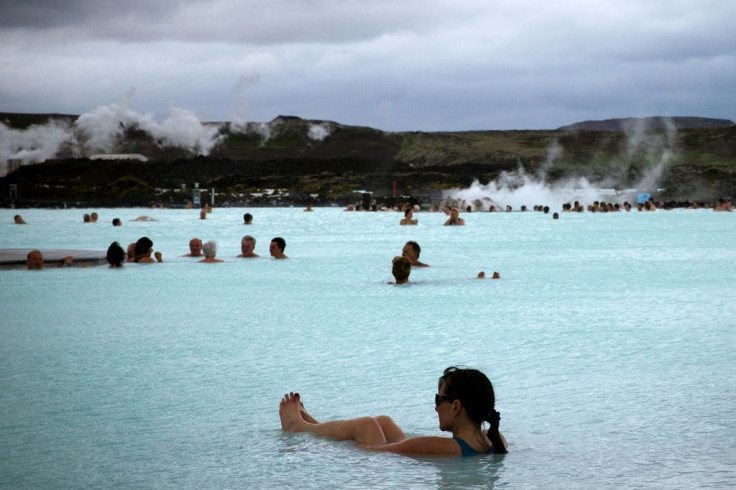Welcoming The Vaccinated, Iceland Hopes To Rescue Tourism
Show the magic proof and open sesame: Iceland on Thursday became the first Schengen country to welcome all international travellers who can prove they've either recovered from Covid-19 or been vaccinated.
While the move is aimed at rescuing the country's struggling tourism sector, it remains largely symbolic: on Thursday, only one flight landed at Iceland's Keflavik international airport -- from Frankfurt with 150 passengers -- a far cry from the dozens that used to land daily before the pandemic.
Ronny Reips, a 33-year-old German paramedic travelling with his girlfriend, was among those who presented a vaccination certificate on arrival, a control that took "one to two minutes" to prove he had received two doses of the Pfizer jab.
"It's the easiest way to travel for now, and nearly the only region or the only country where we can go now. That's why we decided to come here," he told AFP at the airport.
The couple wanted to "enjoy Iceland and a bit more of normal life again."
"It's nice to be a tourist, it's nice to have vacation," chimed Pia Bodelier, a 46-year-old doctor from western Germany who also had a vaccination certificate with her.
The European Union on Wednesday announced plans for a digital vaccine travel certificate expected to be in place by summer.
But Iceland, a non-EU member which belongs to the Schengen area on free movement, is one step ahead.
Among the first countries in the world to accept vaccination certificates, Iceland has since the end of January welcomed travellers from the Schengen area as long as they can prove they've received their two vaccine doses.
That has now been expanded to any traveller, including those outside the Schengen zone, who can present either the WHO's Yellow Card vaccination certificate or a positive Covid-19 test dating back more than 14 days.
Any of those three options enables travellers to skip Iceland's requirement for a negative Covid test before departure and five-day quarantine with tests on day one and five.

Tourism is one of Iceland's most important business sectors -- accounting for 8.1 percent of gross domestic product, with two million people visiting the North Atlantic island of just 365,000 people in 2019 -- and it is eager to see the industry thrive again.
"This is the light at the end of the tunnel, we see it coming," said Melissa Munguia, the director of rooms division at Center Hotels.
The country's second-biggest hotel chain had to shut six of its eight establishments due to a lack of tourists. Its occupancy rate is currently lower than 10 percent.
By opening up to travellers outside Schengen, Iceland is primarily hoping to attract American and British tourists, who made up 36 percent of visitors before the pandemic.
"We believe that this is a very important part of building up again after Covid," said Skarphedinn Berg Steinarsson, head of Iceland's Tourist Board.
"The American market is by far the biggest market all year-round, and the UK market has been especially strong during spring and fall," he said.
Several EU countries with important tourism sectors, such as Cyprus, Greece and Portugal, have recently announced their willingness to welcome British travellers -- as of May.
The impact of the Icelandic decision, announced on Tuesday, will however not be immediate, with industry officials only expecting to see the effects in May or June.
"This is really important for people to ... start to plan and book their trips," explained Sigridur Dogg Gudmundsdottir, the head of the Visit Iceland website for the tourism promotion agency.
"But we are not expecting any boom happening in the next few weeks," she said.
Numerous countries still have travel bans in place and air traffic has been vastly reduced. Iceland currently has only one flight operating outside the EU, to Boston, with two flights a week.
"Before, we just caught a plane as (we would) catch the bus. Plus all the procedures with the certificate -- it's additional cost and time as well," stressed Melissa Munguia.
The only vaccines recognised by Iceland are those approved by the European Medicines Agency (EMA) and the WHO: Pfizer, Moderna, AstraZeneca and the single-dose vaccine from Janssen.
© Copyright AFP 2024. All rights reserved.





















